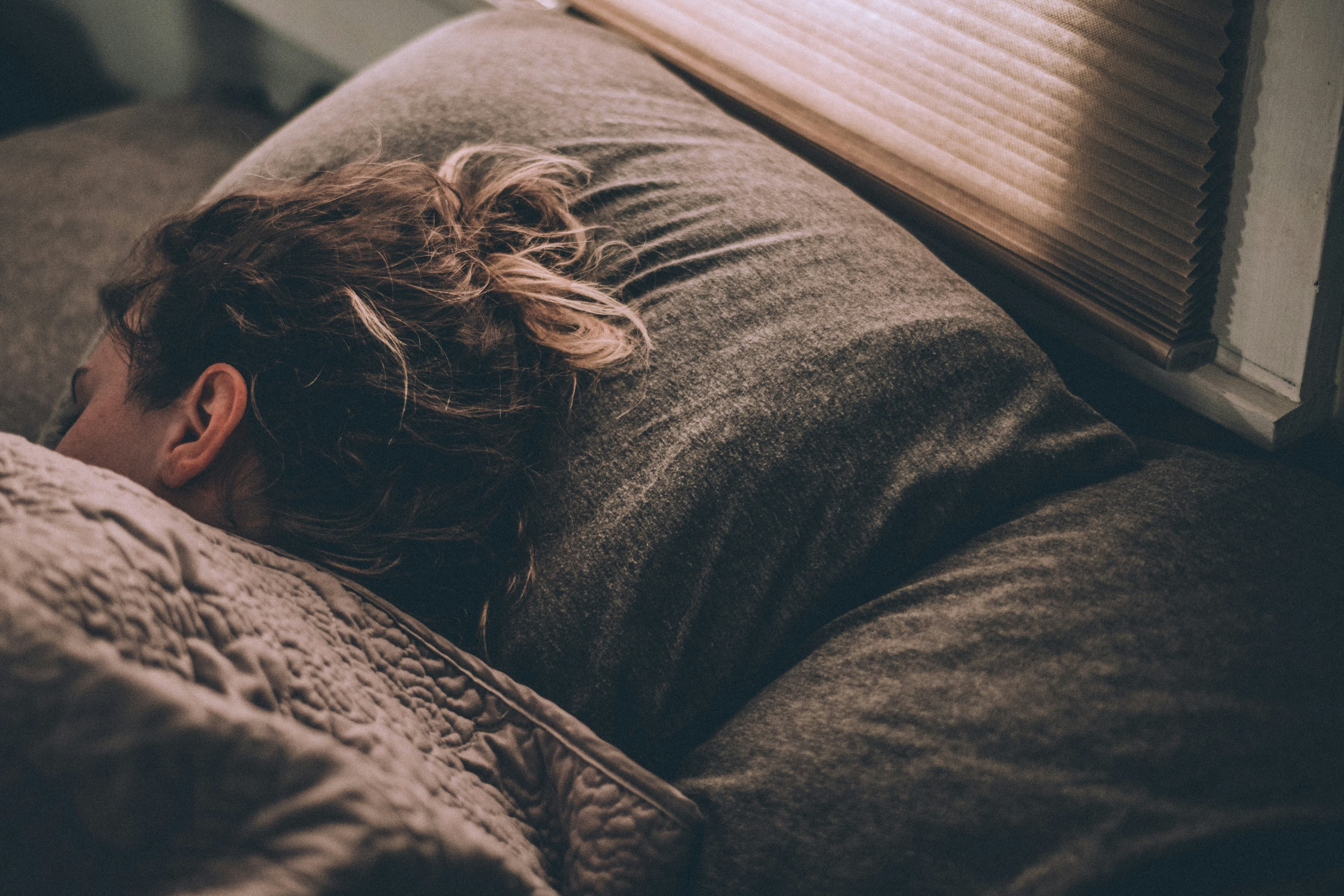Bedtime can be one of the most stressful times for parents. Sometimes it may seem like an eternity before your children go to sleep amidst negotiations of 5 more minutes. Crying because of monsters under the bed, or whatever ways your children can think of to get out of bedtime. You are not alone, as many other parents worldwide have the same challenge as you during bedtime. But, bedtime doesn't have to be a constant battle.
There are many things you can try to get your child to bed and fall asleep (and stay asleep) fast. A good bedtime routine can help, and abating fears about monsters can be a practical way of putting your children to sleep. We'll discuss these tips and many others to help you win the bedtime war with your children. But first, make sure their room is equipped with one of the best toddler mattresses on the market so they can enjoy their time asleep!
Why is sleep important?
Why is there such a fuss about getting children to bed on time and getting the right number of hours of sleep? The answer is simple. Sleep plays an important role when children are growing. Proper sleep helps develop the minds and bodies of growing children. In addition to this, sleep also:
- Has a direct effect on your children's moods and their level of happiness
- Increases their alertness and attention as well as your children's cognitive performance
- It helps your children learn better in school and helps improve their memory.
When your child is not getting enough sleep, she can swing between being extremely moody and hyperactive. She may even exhibit behavior similar to ADHD. Lack of sleep can also affect how she performs in school. She may have a hard time concentrating and retaining the lessons.
Poor sleep can also cause poor immune systems, stress, anxiety, insomnia, and depression. New research also shows worrying evidence that poor sleep can lead to higher risks of hypertension, obesity , and diabetes later on in life. With all the ill effects of NOT sleeping correctly, you must ensure your child develops healthy sleeping habits early.
How to fall asleep fast for kids
Most children can go to sleep within 20 minutes of going to bed. The challenge is getting children to wind down and sleep, and this depends mainly on how sleepy and tired their bodies are. Below are some tried and tested tips you can try to get your child to sleep and stay asleep.
1. Create a bedtime routine
Children can greatly benefit from structure because it gives them a sense of safety and security. Creating a nightly routine helps their bodies wind down and anticipate associations that prepare them for bedtime.
A bedtime routine can be anything that works for you and your child. But it's a good idea to start with a wind-down period 30 minutes before the actual bedtime routine begins. You can choose light playtime, turn off TVs and devices, dim the lights in your child's room and talk slower. All these subtle cues act as a signal for your child that bedtime is coming.
The actual nightly bedtime routine may include:
- A lovely shower or warm bath
- Brushing their teeth
- Getting dressed in their bedtime clothes
- A Bedtime story ( or two) and good night kisses
The above is just a suggestion for a bedtime routine, and you're certainly free to tweak it into something that works for your family. Whatever bedtime routine you choose, the important thing is to be consistent.
Don't give in to "ten more minutes" protests; be firm yet gentle when bedtime comes.
2. Create a regular sleep and wake time
Like a bedtime routine, having a regular sleep and wake time is beneficial to your child. This regularity keeps your child's body clock in a regular pattern and makes sure your children, especially school-aged ones, wake up on time for school.
Two questions need to be answered when you set your child's bedtime and wake time. The first is how much sleep does your child need? And the second, is what time should you put your child to bed?
The National Sleep Foundation (NSF) suggests the following number of hours for babies and children:
- 0-3 months old: 14 to 17 hours
- 4-6 months old: 12 to 16 hours
- 7-11 months old: 12 to 16 hours
- 1-2 years old: 11 to 14 hours
- 3-5 years old: 10 to 13 hours
- 6-13 years old: 9 to 11 hours
Now that you have a rough idea of how much sleep your child needs, you need to set a bedtime. The easiest way to do this is to pick a time when your child needs to wake up in the morning. And then work your way backward from there. For example, your 8-year-old needs to be up at 6.30 am to go to school. You know your child needs about 9 hours of sleep, so you work backward from there – 8:30 pm. Of course, each child is different, so make sure to adjust it accordingly to your child's needs.
3. Create an environment ideal for sleep
One of the best ways to get your child to fall asleep fast is to make sure the bedroom is conducive to sleep. Of course, relaxing for one child might be stressful for another. But ideally, a bedroom ready for sleep should be dimly lit, quiet, and at a comfortable temperature. Younger children might find comfort with a stuffed animal and a night light. If your child can't sleep in silence, you can play some soothing music. You can also use aromatherapy and use a bit of lavender essential oil to help them fall asleep faster.
Also, make sure they have a good mattress to sleep on. Choose a 'Goldilocks' type of mattress for your child - not hard, but not too soft either. A Leesa mattress can provide the right amount of support and spring to your child, no matter how she sleeps at night.
4. Turn off Devices
When your child is winding down for bed, turn off the television, computers, tablets, and phones. This means no more screen time when it's almost time for bed. This one can be a toughie, and you're not the only one who uses electronic devices to help children settle down in the evening. It's tempting to let your little ones watch their favorite show before bedtime, but they can have trouble falling asleep.
There are several ways technology can affect sleep:
- Interferes with the production of melatonin. Melatonin is a sleep hormone produced in the brain when the body senses there is a reduction in light. The blue light coming from devices can interfere with the production of melatonin. Disruption of melatonin production, in turn, can cause your children to fall asleep later and have poor sleep later on.
- Exciting content can impair sleep quality. Watching what children consider exciting can have a substantial impact on their sleep. Their heart rate can increase, making it hard for them to sleep faster and affecting the quality of their sleep as well.
- Cut in their sleep time. In addition to the two discussed above, screen time can cut into the time usually reserved for sleep. To promote better sleep, a sleep specialist will usually advise the bed solely be used for sleeping.
5. Practice mindfulness meditation before bedtime
A Harvard study suggests that mindfulness meditation, focusing on deep breathing and awareness of the present moment, can promote sleep. You can incorporate meditation as part of their bedtime routines. If you're interested, there are many ways you can start with this type of meditation for your kids:
- Start with slow deep breaths. Meditation for your children doesn't have to be complicated. It can start simply with mindful breathing . Ask your child to take relaxing breaths with their eyes closed. You can lead them yourselves or access some guides and read them to them. Another option would be to download a sleep app specializing in children's meditation. You can choose to have them listen to it through a speaker, so the phone's blue screen doesn't affect them.
- For younger children, look for books that deal with meditation. Books like Mindful Monkey and Happy Panda teach the basics of meditation and mindfulness to little children.
Don't worry if your child doesn't take to meditation on the first few tries. It takes time for them to get used to it. The important thing is that they get some quiet time to relax and calm their bodies before bedtime.
6. Cool the room
Before we had insulated homes, the cool temperature when the sunset was a signal for the body to wind down for the night. This drop in temperature helps your body cool down two to three degrees. When your body temperature drops , you become less alert, and your metabolism slows down.
With the above in mind, you may want to set your child's room temperature anywhere between 65 to 70 degrees (18 to 21 Centigrade). Dress your child in breathable cotton to keep them comfortable–and warm their toes . Studies show that warming the toes effectively allows the body to cool quicker and allows your child to go to sleep faster.
7. Give them enough exercise.
If your child has some trouble getting to sleep at night, you might want to make sure she has enough physical activity in the morning. This is because regular exercise can be a solution to better sleep. It sounds counterintuitive at first, but studies have shown inactive children fall asleep later than a child actively playing during the day. This means that a child who spends the day watching tv will have more trouble sleeping (and staying asleep) than an active child.
Encourage your child to play during the daytime. Let them play in the yard, swim in the pool ( with supervision), or take them to the playground. Thirty minutes to an hour of physical activity will help them get a good night's sleep later on.
8. Avoid energy drinks; offer a healthy snack instead
If your child drinks cola or sugary drinks, make sure they drink it in moderation and never at bedtime. As with adults, sugar and caffeine can make you more alert during bedtime, making it more difficult to fall asleep. If your child asks for a snack before bedtime, give her a healthy snack. This snack can include warm milk, graham crackers, and whole wheat cereal with milk or fruit. Make sure it's a light snack, as a full stomach can also interfere with sleep. Moderation is key.
9. Increase your child's sleep confidence
Younger children will sometimes have trouble falling asleep simply because they're scared of being in the dark by themselves. Please don't dismiss this fear because, for young children, this fear is natural for them. You can find creative ways to address this fear and make your child feel safe. Some of which are:
- Check for 'monsters' under the bed and reassure your child there are none.
- Give them an anti-monster flashlight to zap any monsters away.
- Make sure they have their favorite stuffed animal with them, so they are not alone when they sleep.
- Put a night light on.
Reinforce good behavior by rewarding and praising your child every time she is brave and goes to sleep by herself. Also, avoid letting your child watch anything she considers scary. Remember, children have an active imagination.
10. Address sleep problems
When you've tried all the tips and addressed issues like colds, change in routine, change of schools, et cetera. And your child still has trouble falling asleep? It's time for you to perhaps look into sleep problems. As many as 50 percent of children suffer from sleep problems. Night terrors, sleepwalking and talking, snoring, apnea, and restless leg syndrome are the most common children's sleep disorders.
- Night terrors are parasomnia that happens early in the night during non-REM sleep. If your child is experiencing night terror, she might bolt upright in the bed screaming, but she won't remember anything in the morning. Try to keep your children safe by making sure they stay in bed when it occurs. Occasional night terrors are not a cause for worry, but if it happens often, take it up with your pediatrician the next time you see her.
- Snoring, if it occurs occasionally, is expected. But if you notice your child is snoring a lot or is displaying pauses in breathing, then gasping after, she might have sleep apnea. There are clues to look for when you suspect sleep apnea. One of the most obvious ones is when your child is very sleepy during the day, is hyperactive, and has difficulty concentrating. If you suspect sleep apnea, talk to your pediatrician.
- Sleepwalking is another sleep disorder you might want to look into. A study shows that one in three children will experience sleepwalking before turning 13. As with night terrors, your child will not be conscious during this time and will not remember anything the following day. If your child tends to sleepwalk, keep them safe by safety-proofing their bedroom. If you have a two-story house, have your child sleep in the first-floor bedroom. If you know the approximate time they sleepwalk, waking your child 30 minutes before can help prevent it. You might want to consult your pediatrician if sleepwalking episodes get worse.
Every child is different, and so is their sleep.
Sleep is essential to a child's development, so your child must get her recommended amount of sleep every night. Tailor our tips to your child's unique needs and call your pediatrician if you’re really worried about your child’s sleep. If you are looking for a mattress to ensure your child gets the sleep she deserves, our team at Leesa is there to help. Shop Leesa today.
FAQs
How can a 12-year-old fall asleep fast?
Turn off screen time 30 minutes to one hour before bedtime. Set a bedtime for them, and make sure your twelve-year-old doesn't drink any sugary or caffeinated drinks before bedtime.
How can a nine-year-old fall asleep fast?
Ensure the bedroom is set up for sleep (dim light, low temperature, etc.). Have a bedtime routine, and make sure to stick to it.
How can kids get to sleep faster?
One of the best ways to get children to sleep is to set a nighttime routine and stick to it. Make sure the bedroom is ideal for sleeping, and the lights are dim. Try the tips above and tailor them to your child's unique needs.



